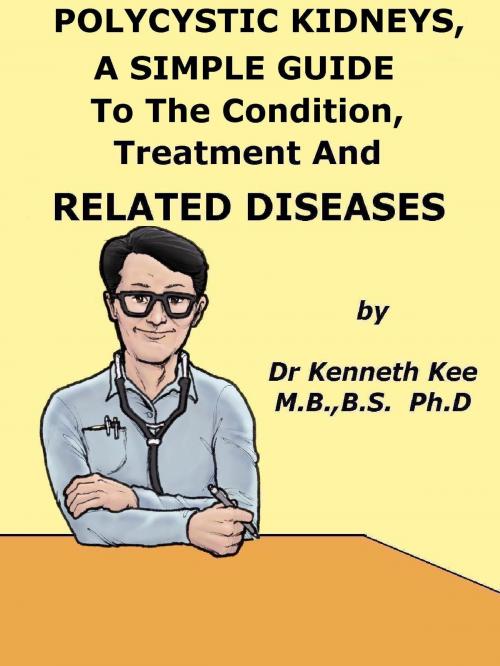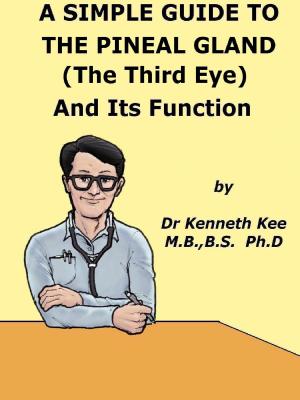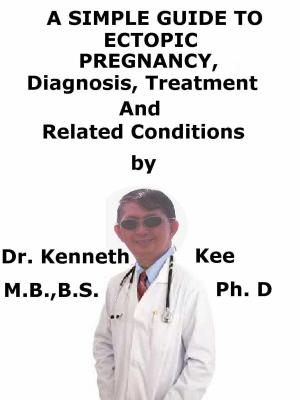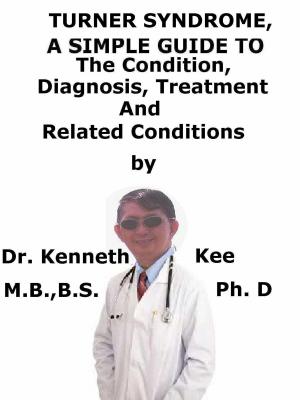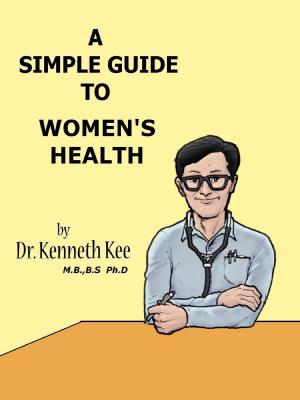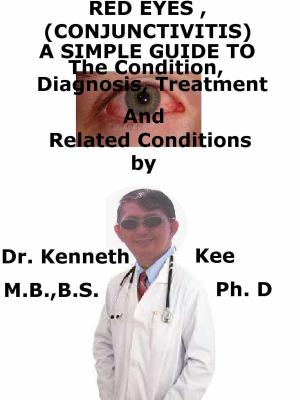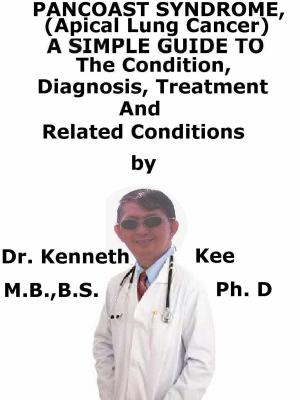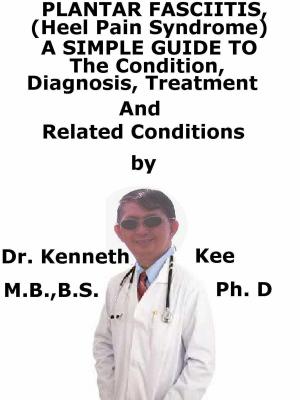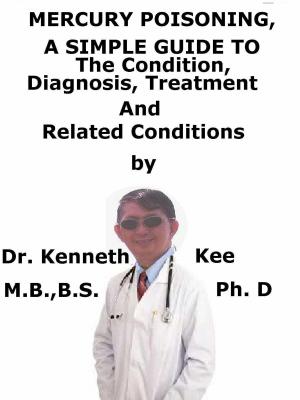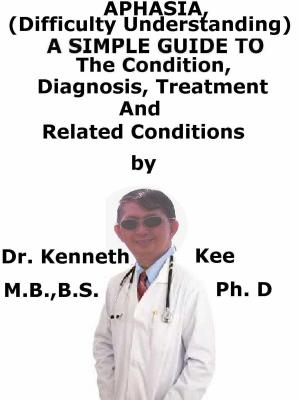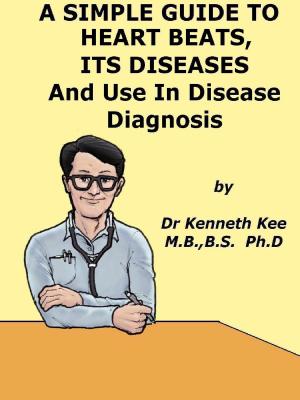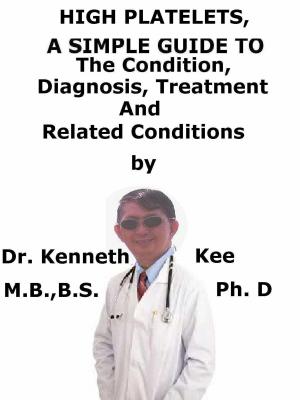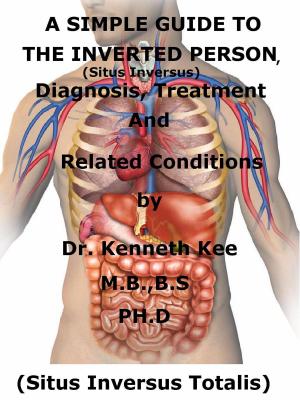Polycystic Kidneys, A Simple Guide To The Condition, Treatment And Related Diseases
Nonfiction, Health & Well Being, Medical, Specialties, Urology, Health, Ailments & Diseases, Genetic| Author: | Kenneth Kee | ISBN: | 9781310276361 |
| Publisher: | Kenneth Kee | Publication: | February 20, 2015 |
| Imprint: | Smashwords Edition | Language: | English |
| Author: | Kenneth Kee |
| ISBN: | 9781310276361 |
| Publisher: | Kenneth Kee |
| Publication: | February 20, 2015 |
| Imprint: | Smashwords Edition |
| Language: | English |
Polycystic kidney disease is a progressive genetic condition
Polycystic kidney can lead to kidney dysfunction
It is usually autosomal dominant with large cysts development
These large cysts may require some form of treatment
The kidneys are bilaterally enlarged and have multiple cysts
Polycystic kidneys are associated with cysts in the liver and testes
Aortic and brain aneurysms are also present in this disease
Pain in the abdomen, flank or back is due to the kidney cysts.
It is the most frequent genetic cause of renal failure
The kidney cysts are always associated with high blood pressure
Urinary infection can spread from the urinary tract to the kidney
Urinary tract infections must be treated with antibiotics early
Damage to the kidney will end in loss of kidney function
There will be associated liver failure and hypertension
Treatment is by control of salt, blood pressure and dialysis
To remove waste products of metabolism and electrolysis
-An original poem by Kenneth Kee
Interesting Tips about the Polycystic Kidneys
A Healthy Lifestyle
-
Take a well Balanced Diet
-
Genetic counseling may help families at risk for polycystic kidney disease.
Although a cure for Polycystic kidney disease is not possible, treatment can ease the symptoms and prolong life.
a. Back Pain: Mild pain killers such as paracetamol can relieve pain.
b. Urinary tract infections: Urinary tract infections can be treated with antibiotics.
c. Once the infection enter the cyst, treatment is difficult because many antibiotics cannot enter the walls of the cysts.
d. High blood pressure:
All hypertensions due to polycystic kidney disease can be controlled with:
i. Anti hypertensive medications and
ii. Lifestyle changes such as
Exercise,
De-stressing,
Low salt and fats
e. Renal disease:
Eventually in all cases the kidney function will fail and chronic real failure will develop.
Treatment will then be by dialysis or kidney transplant.
f. Surgery:
Surgery is rarely needed except to remove large cysts. Even then the kidney disease is progressive and will still end in chronic renal failure. -
Keep bones and body strong
Bone marrow produces our blood
Eat foods rich in calcium like yogurt, cheese, milk, and dark green vegetables.
Eat foods rich in Vitamin D, like eggs, fatty fish, cereal, and fortified milk.
Eat food rich in Vitamins B and C such as green vegetables and fruits
Zinc and other minerals are important to the body
- Get enough rest and Sleep
Avoid stress and tension
- Exercise and stay active.
It is best to do weight-bearing exercise such as walking, jogging, stair climbing, dancing, or lifting weights for 2½ hours a week.
One way to do this is to be active 30 minutes a day at least 5 days a week.
Begin slowly especially if a person has not been active.
- Do not drink more than 2 alcohol drinks a day for a man or 1 alcohol drink a day for a woman.
Alcohol use also increases the chance of falling and breaking a bone.
Alcohol can affect the neurons and brain cells.
- Stop or do not begin smoking.
It also interferes with blood supply and healing.
Cigarettes contain more than forty types of hazardous and possibly cancer causing chemicals which can harm the smokers and those around them
Chapter 1
Polycystic Kidneys
Polycystic kidneys are rare.
I have only come across 2 cases of polycystic kidneys in my clinic.
Both of them were found through X-rays of the abdominal for other conditions such as suspected gallstones or kidney stones.
The X-rays usually showed small cysts in the kidneys
What is Polycystic Kidney?
Polycystic kidney disease is a progressive genetic condition of the kidneys in which multiple cysts (polycystic) are present in both kidneys.
The disease can produce cysts in the liver, pancreas, and rarely, the heart and brain.
Polycystic kidney disease is a progressive genetic condition
Polycystic kidney can lead to kidney dysfunction
It is usually autosomal dominant with large cysts development
These large cysts may require some form of treatment
The kidneys are bilaterally enlarged and have multiple cysts
Polycystic kidneys are associated with cysts in the liver and testes
Aortic and brain aneurysms are also present in this disease
Pain in the abdomen, flank or back is due to the kidney cysts.
It is the most frequent genetic cause of renal failure
The kidney cysts are always associated with high blood pressure
Urinary infection can spread from the urinary tract to the kidney
Urinary tract infections must be treated with antibiotics early
Damage to the kidney will end in loss of kidney function
There will be associated liver failure and hypertension
Treatment is by control of salt, blood pressure and dialysis
To remove waste products of metabolism and electrolysis
-An original poem by Kenneth Kee
Interesting Tips about the Polycystic Kidneys
A Healthy Lifestyle
-
Take a well Balanced Diet
-
Genetic counseling may help families at risk for polycystic kidney disease.
Although a cure for Polycystic kidney disease is not possible, treatment can ease the symptoms and prolong life.
a. Back Pain: Mild pain killers such as paracetamol can relieve pain.
b. Urinary tract infections: Urinary tract infections can be treated with antibiotics.
c. Once the infection enter the cyst, treatment is difficult because many antibiotics cannot enter the walls of the cysts.
d. High blood pressure:
All hypertensions due to polycystic kidney disease can be controlled with:
i. Anti hypertensive medications and
ii. Lifestyle changes such as
Exercise,
De-stressing,
Low salt and fats
e. Renal disease:
Eventually in all cases the kidney function will fail and chronic real failure will develop.
Treatment will then be by dialysis or kidney transplant.
f. Surgery:
Surgery is rarely needed except to remove large cysts. Even then the kidney disease is progressive and will still end in chronic renal failure. -
Keep bones and body strong
Bone marrow produces our blood
Eat foods rich in calcium like yogurt, cheese, milk, and dark green vegetables.
Eat foods rich in Vitamin D, like eggs, fatty fish, cereal, and fortified milk.
Eat food rich in Vitamins B and C such as green vegetables and fruits
Zinc and other minerals are important to the body
- Get enough rest and Sleep
Avoid stress and tension
- Exercise and stay active.
It is best to do weight-bearing exercise such as walking, jogging, stair climbing, dancing, or lifting weights for 2½ hours a week.
One way to do this is to be active 30 minutes a day at least 5 days a week.
Begin slowly especially if a person has not been active.
- Do not drink more than 2 alcohol drinks a day for a man or 1 alcohol drink a day for a woman.
Alcohol use also increases the chance of falling and breaking a bone.
Alcohol can affect the neurons and brain cells.
- Stop or do not begin smoking.
It also interferes with blood supply and healing.
Cigarettes contain more than forty types of hazardous and possibly cancer causing chemicals which can harm the smokers and those around them
Chapter 1
Polycystic Kidneys
Polycystic kidneys are rare.
I have only come across 2 cases of polycystic kidneys in my clinic.
Both of them were found through X-rays of the abdominal for other conditions such as suspected gallstones or kidney stones.
The X-rays usually showed small cysts in the kidneys
What is Polycystic Kidney?
Polycystic kidney disease is a progressive genetic condition of the kidneys in which multiple cysts (polycystic) are present in both kidneys.
The disease can produce cysts in the liver, pancreas, and rarely, the heart and brain.
